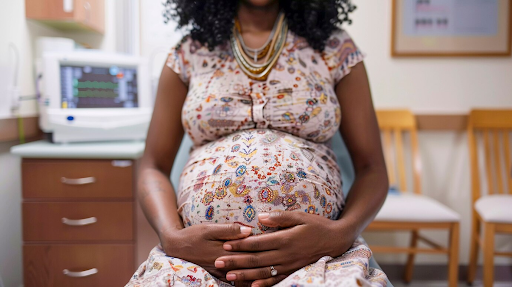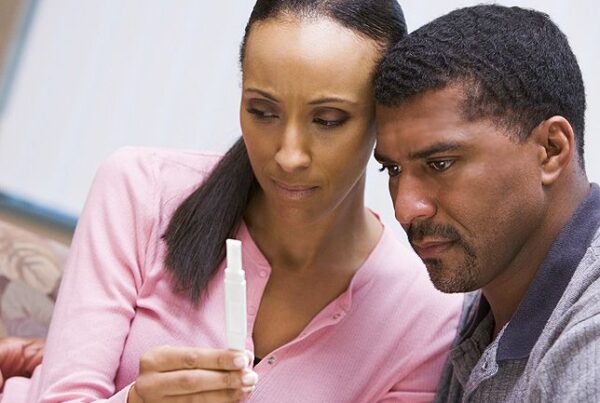If a woman has been trying to conceive unsuccessfully for a year or longer and she is experiencing pelvic pain, or severe menstrual cramps, a condition known as Endometriosis could be suspected.Endometriosis is the growth of endometrial cells outside of the uterus that is abnormal location. A fertility evaluation and diagnostic laparoscopic surgery are often required to confirm the diagnosis.
When a woman with endometriosis has her monthly period, the blood and tissue shed from the endometrial growth has no way of leaving the body, hence resulting in internal bleeding and inflammation that may result in pain, adhesions and bowel problems.
Getting pregnant with endometriosis is quite often a big challenge, but with fertility treatment, it’s a real possibility.
Around 30 – 50 percent of women with endometriosis will experience infertility. Some infertile women are six to eight times more likely to have endometriosis than those who don’t struggle to conceive. In one in four couples who receive a diagnosis of unexplained infertility that is when no abnormality is discovered on routine infertility investigations, many of them may actually be dealing with mild endometriosis.
Endometriosis is often a controversial topic. Women that are 35 or older that have been diagnosed with endometriosis need to be examined by a fertility specialist. Normally women with endometriosis, who are not trying to get pregnant, are given birth control drugs to lessen pain symptoms.
It’s important to know that the birth control pills don’t cure or treat endometriosis. They simply reduce uncomfortable symptoms by suppressing the hormones that feed into endometrial deposits.
For moderate to severe endometriosis, surgery may be required to remove endometrial lesions or cysts. Surgery can reduce pain, but repeated operations can cause scar tissue. The scar tissue may increase the risk of infertility and even increase pain.
In very severe and recurrent cases of endometriosis, the uterus, ovaries, or part of the ovaries may need to be removed and will impact the woman’s future fertility. However, surgical removal of the reproductive organs isn’t a cure for endometriosis. You may still experience pain. Before having the surgery, talk to the reproductive surgeon in detail about future fertility plans. Be fully informed about all the risks and benefits.
Understanding how endometriosis impacts fertility is complex. When endometriosis causes the formation of scar tissue that (which may interfere with ovulation), or endometrial scar tissue blocks the fallopian tubes, the reason for infertility is clearer. However, women with endometriosis who don’t have endometrial ovarian cysts or blocked fallopian tubes may still experience reduced fertility.
The scar tissue or adhesions may pull on the reproductive organs, impeding their ability to function normally. Adhesions may also cause fallopian tube blockage, which can prevent the egg and sperm from meeting. Women with endometriosis have biochemical signs of increased inflammation.
While endometriosis is a condition that causes endometrial-like tissue to grow outside of the uterus, it may also affect the endometrium itself, hence embryo implantation rates are lower in women with endometriosis.
However, it’s possible lower embryo implantation rates are not due to problems with the endometrium but are related to poor egg quality. Some research on IVF has found that women with endometriosis who use donor eggs have similar embryo implantation rates to women without endometriosis.
Women with endometriosis may have lower egg quality and the embryos from them develop slower than average.
Also, when an egg donor has endometriosis, and those eggs are used in a woman without endometriosis, the resulting embryos tend to be of lower quality and implantation rates are negatively affected.
There are levels of severity of endometriosis, depending on the location, amount, and depth of endometrial deposits. There is Stage I, Stage II, Stage III, and Stage IV. These stages are used to help describe and evaluate the severity of endometriosis, with Stage I being mild endometriosis, and Stage IV being severe. Majority of women with stage IV endometriosis will require IVF treatment. However, the stage of endometriosis cannot predict whether fertility treatments will be successful or not.
It is possible to have Stage II endometriosis and go through numerous failed IVF treatments. And it’s possible to have Stage IV endometriosis and conceive on the first cycle.
Another reason endometriosis staging can’t predict the odds for pregnancy success is because there are frequently other fertility factors to consider. A woman with Stage IV endometriosis may also have male factor infertility issues to consider. The bottom line here is not to put too much emphasis on the stage of endometriosis.
How much pain that the condition is causing may not also predict the odds for pregnancy success. This is partially because the amount of pain isn’t necessarily related to the severity of the endometriosis.
While severe endometriosis tends to come with increased pain, it’s also possible for mild endometriosis to cause severe pain. It depends on where the endometrial deposits are located. More pain doesn’t mean it will be harder for the woman to get pregnant compared to a woman with less pain.
From experience, it is known that the most effective per cycle treatment for endometriosis-related infertility is IVF treatment. An effective treatment plan will also depend on the stage of the endometriosis and whether endometriosis alone is the cause of infertility and it is useful to consider the woman’s age.
Fertility drugs alone may not be recommended for women with endometriosis because they don’t significantly improve the pregnancy rates. For women with Stage I or Stage II endometriosis, fertility drugs with intrauterine insemination (IUI) is often the recommended starting point. If fertility drugs with IUI are unsuccessful, then it is best to try IVF. Women at any Stage of endometriosis may opt for IVF. Women over 35; couples with other complicating fertility factors (like male factor infertility or low ovarian reserves) also benefit significantly from IVF.
Generally speaking, endometriosis is associated with lower egg retrieval numbers, lower implantation rates, and lower pregnancy rates, when compared to other causes of infertility. Determining IVF success rates for women with endometriosis is complicated but success are usually recorded.
The number one reason for surgical removal of endometrial deposits is to reduce pain symptoms.





